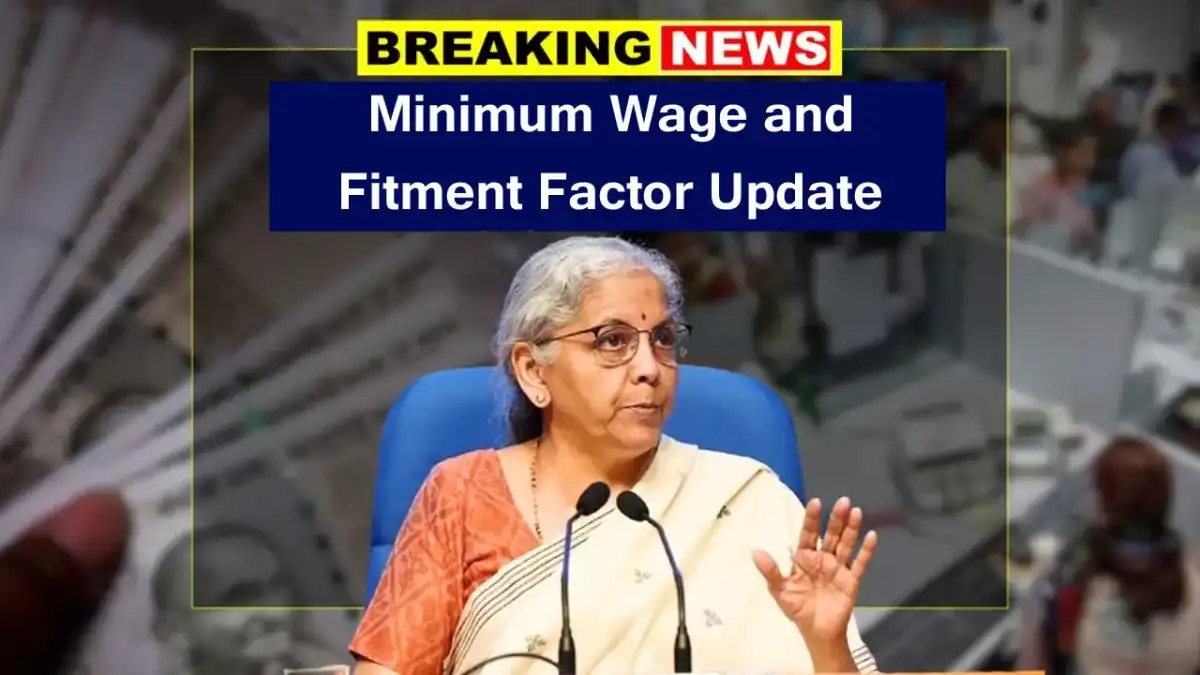Fitment Factor and Minimum Wage Hike: What’s Next for Government Employees?
Fitment Factor and Minimum Wage Hike: The National Council – Joint Consultative Machinery (NC-JCM) is gearing up for a major announcement, with plans to form a panel dedicated to drafting a Common Memorandum in preparation for the expected 8th Pay Commission.
This development holds significant importance for millions of central government employees, as it will influence future revisions in salaries, pensions, and other benefits. Key demands likely to be highlighted in the memorandum include an increase in the fitment factor and a hike in the minimum wage.

Understanding the Fitment Factor and Its Impact
The fitment factor plays a crucial role in shaping the future salaries and allowances of government employees. At present, the factor is fixed at 2.57 times the basic pay. However, employee unions are actively advocating for a revision, demanding an increase to 3.68 times. If approved, this change would lead to a substantial hike in the minimum basic salary, raising it from ₹18,000 to around ₹26,000.
This proposed increase is likely to be included in the Common Memorandum, which will be submitted to the government during the preparations for the 8th Pay Commission. If approved, it could be a major breakthrough for government employees, who have been demanding higher salaries to match the rising inflation and cost of living.
What Will the Common Memorandum Include?
Along with the revision of the fitment factor, the Common Memorandum is expected to address several other critical issues concerning government employees. Key topics likely to be highlighted include pension reforms, restructuring of the dearness allowance (DA), and resolving anomalies that arose from the implementation of earlier pay commissions. Employee representatives have emphasized that with rising inflation and the decreasing purchasing power of employees, it has become essential for the government to tackle these persistent challenges.
The NC-JCM will gather feedback from various departments and ministries to ensure that the demands represent the wide-ranging concerns of employees from both urban and rural areas. The primary aim is to prepare a thorough and well-rounded list of demands that accurately captures the financial pressures faced by government employees today.
Formation of the Panel: A Step Closer to the 8th Pay Commission
The establishment of this panel represents a significant move towards the much-anticipated 8th Pay Commission, expected to be officially announced in the coming months. The panel will comprise union representatives, subject matter experts, and administrative officials to ensure a fair and comprehensive approach to employee demands. Drawing insights from various sectors, the panel will work towards a data-driven framework that takes into account inflation rates, living expenses, and other key economic factors affecting the standard of living of government employees.
It is important to note that the last major salary revision took place almost a decade ago with the implementation of the 7th Pay Commission. As a result, the 8th Pay Commission has generated widespread anticipation among millions of government workers. Sources within the NC-JCM have emphasized the urgency of timely action, highlighting the financial pressures faced by employees and the need for prompt and meaningful reforms.
What Does This Mean for Central Government Employees?
The formation of the NC-JCM panel and the drafting of the Common Memorandum mark a significant milestone for central government employees. Key demands, including the revision of the fitment factor and an increase in the minimum wage, are expected to lay the groundwork for the upcoming discussions around the 8th Pay Commission. This initiative could usher in improvements in pay structures, pension schemes, and overall employee welfare.
As the process progresses, employees can anticipate more concentrated efforts to resolve longstanding issues that have been neglected for years. With strong support from the NC-JCM, there is renewed hope among government employees that meaningful reforms will soon become a reality.

